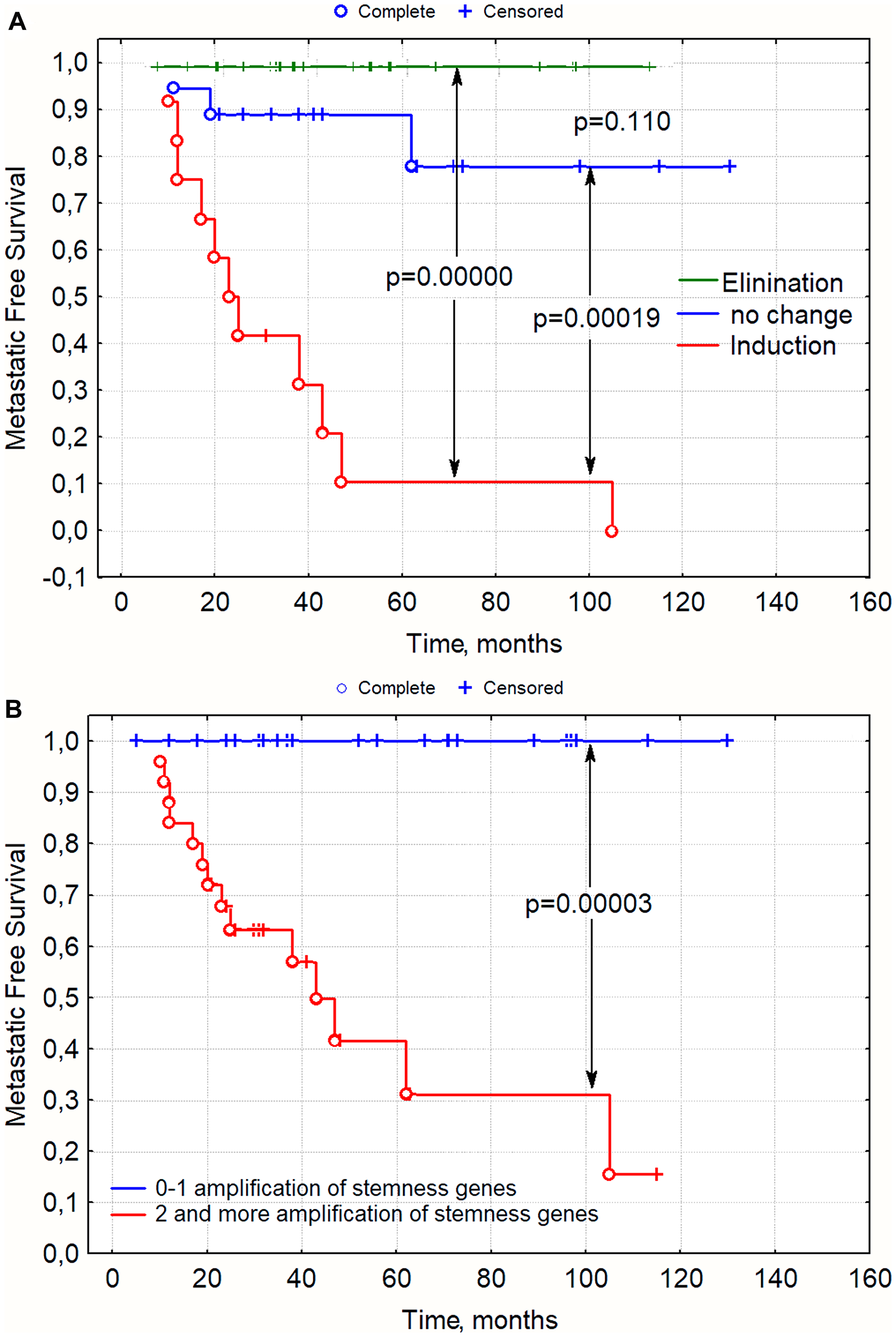Volume 11, Issue 21 of @Oncotarget reported that using primary cultures from the breast tumor of patient St23784/17 with stemness gene amplification and patient Ti41749/17 without stemness gene amplification in the tumor, the research team studied the expression of stemness genes, proliferative tumor stem-cell activity, mammosphere formation, and expression of the CD44 tumor stem cell marker.
Primary cultures of Ep Cam+ tumor cells from patients with stemness gene amplifications revealed high proliferative activity.
Primary cultures of Ep Cam+ tumor cells from the patient with no stemness gene amplifications had relatively low proliferative activity.
The results of this study show that stemness gene amplification in tumor cells is associated with metastasis and determines their potential stem property activation and non-CSC to CSC plasticity with the formation of Ep Cam+CD44hi CD24 /low cells, active proliferation, mammosphere formation, and metastasis.
Dr. Nikolai Litviakov from The Laboratory of Oncovirology, Cancer Research Institute Tomsk NRMC as well as The Biological Institute of National Research Tomsk State University said, "According to the hierarchical model of tumor growth, only cancer stem cells (CSCs), but not differentiated tumor cells, are capable of forming new tumors and metastases."
"According to the hierarchical model of tumor growth, only cancer stem cells (CSCs), but not differentiated tumor cells, are capable of forming new tumors and metastases"
- Dr. Nikolai Litviakov, The Laboratory of Oncovirology, Cancer Research Institute Tomsk NRMC & The Biological Institute of National Research Tomsk State University
According to the hierarchical model of tumor growth, only cancer stem cells, but not differentiated tumor cells, are capable of forming new tumors and metastases.
Conversely, the plasticity of differentiated tumor cells has been shown, as well as the acquisition of a stem phenotype by differentiated tumor cells and a model of neutral competition.
Apart from studies showing some cytokines and micro RNAs that induce a stem phenotype, a wide range of studies have shown that forced overexpression of stemness genes, such as OCT3, SOX2, KLF4, MYC, NOTCH1, NANOG, and LIN28, as well as epithelial-mesenchymal transition genes, leads to stem phenotype induction and increased stem-like cancer cell activity.

Figure 1: Metastasis-free survival rate in patients with breast cancer depending on changes in stemness gene amplifications during NAC (1a) and presence of amplifications in the residual tumor after NAC, (1b) p-value–log rank test. Note: On the abscissa: time after treatment in months, on the ordinate: metastasis-free survival; (A) Groups were formed in accordance with Table 1. Change during NAC. (B) Groups were formed in accordance with column 3, depending on the number of amplifications of stemness genes greater than or equal to 2 or less than 2.
Thus, ectopic expression of stemness genes determines the possibility of non-CSC plasticity, induction of complete stem properties, and activity of stem-like cancer cells.
They suspect that the key point in the metastasis process is the acquisition of the ability to ectopically express stemness genes, which in many cases is the result of stemness gene loci amplification.
The Litviakov Research Team concluded in their Oncotarget Research Article that in the absence of ectopic expression of stemness genes, the tumor will produce CTCs, but their low proliferative activity, lack of non-CSC to CSC plasticity ability and formation of a stem phenotype in the internal organs will not allow such tumors to metastasize, even if all other features are normal.
Sign up for free Altmetric alerts about this article
DOI - https://doi.org/10.18632/oncotarget.27608
Full text - https://www.oncotarget.com/article/27608/text/
Correspondence to - Nikolai Litviakov - [email protected]
Keywords - stemness genes, cancer stem cells, breast cancer, microarray analysis, metastasis-free survival
About Oncotarget
Oncotarget is a biweekly, peer-reviewed, open access biomedical journal covering research on all aspects of oncology.
To learn more about Oncotarget, please visit https://www.oncotarget.com or connect with:
SoundCloud - https://soundcloud.com/oncotarget
Facebook - https://www.facebook.com/Oncotarget/
Twitter - https://twitter.com/oncotarget
LinkedIn - https://www.linkedin.com/company/oncotarget
Pinterest - https://www.pinterest.com/oncotarget/
Reddit - https://www.reddit.com/user/Oncotarget/
Oncotarget is published by Impact Journals, LLC please visit http://www.ImpactJournals.com or connect with @ImpactJrnls
Media Contact
[email protected]
18009220957x105


